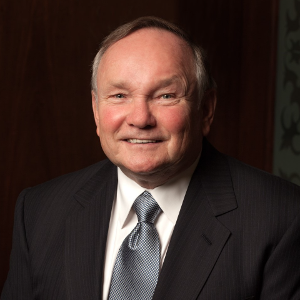Discovery has become more expansive in litigation, despite the fact that the vast majority of civil cases settle before trial. Two federal district courts are participating in a Mandatory Initial Discovery Pilot Project designed to expedite the way standard discovery is exchanged between litigants.
Effective May 1 and June 1, 2017, respectively, the U.S. District Court of Arizona and the U.S. District Court for the Northern District Court of Illinois are participating in the three-year project, the first of its kind. The two participating district courts are studying whether parties involved in civil cases should be required to undertake a series of standard discovery procedures before other traditional discovery gets underway and if that reduces the cost, burden, and delay of civil litigation.
Recently, I had the opportunity to participate in an American Bar Association panel to discuss how to promote more efficient discovery. This pilot project was the focal point of the afternoon discussion, with panelists that included Judge Ruben Castillo, Chief Judge of the Northern District of Illinois. It was moderated by the Hon. John D. Bates of the District Court of Washington, D.C, and Chair of the Advisory Committee on Federal Rules from which this pilot program emanated. The ABA Section of Litigation presentation “Roadshow 2.0: Precision Advocacy” was repeated with other panels in 13 cities, including Chicago and Phoenix, to further explain the need for this pilot project.
According to the Federal Judicial Center (FJC), the pilot project requires that when mandatory initial discovery responses are made, “parties are required to disclose both favorable and unfavorable information that is relevant to their claims or defenses regardless of whether they intend to use the information in their cases.” The objective is a fair trial based on the facts, not clever lawyering and maneuvering. That means no more Perry Mason “ah-ha” moments in the courtroom.
This new rule vastly alters practice under the existing federal rules requiring parties to produce only information that “the disclosing party may use to support its claims or defenses.”
The reason for the pilot rule change is to eliminate parties’ worry about getting their hands on every single document or fear that relevant documents and materials have not been produced. This goes beyond the current disclosures required by Federal Rule of Civil Procedures 26(a)(1)[1].
The Standing Order also provides that “parties must file answers, counterclaims, cross-claims, and replies within the time set forth in Rule 12(a)(1)-(3), even if they have already filed a preliminary motion pursuant to Rule 12(b).” Furthermore, a party seeking affirmative relief must file its response to the mandatory discovery within 30 days of the first pleading filed in response to the complaint, counterclaim, cross claim, or third-party complaint, and in turn, the responsive pleading also must be filed within 30 days. The goal of this project also is to test efficiency.
The pilot project also requires the parties to give the court a Rule 26(f) report that includes a description of their discussions, including resolved and unresolved disagreements and the effort made to resolve those disagreements.
The Standing Order affects all cases filed on or after June 1, 2017, except those categories of cases that have been exempted by the Standing Order, such as MDL and patent cases and/or those cases assigned to judges who have opted out of the program. In Illinois, 17 judges and all magistrates in the Northern District have signed on.
Explanatory materials on the pilot program are available from the Federal Judicial Center as well as the two participating jurisdictions. That includes the Standing Order, checklists, users’ manuals, and two video presentations that provide additional information[2].
The pilot project seems very well conceived and will be very useful in straightforward cases. In cases that are more complex, the meet and confer requirement will be a particularly useful tool for increasing compliance with the rules.
Those behind this program are anxious to see what parts of the program produce the results that will help move cases more efficiently through the discovery process in federal court. In three years, we may be looking at a very different way discovery is conducted in all federal courts.
------------------------
[1] https://www.law.cornell.edu/rules/frcp/rule_26
[2]www.fjc.gov:https://www.fjc.gov/content/321837/mandatory-initial-discovery-pilot-project-overview
------------------------
Robert A. Clifford is a nationally recognized personal injury attorney and a leader of the bar. Named in The Best Lawyers in America© since its inception, Clifford has obtained record verdicts and settlements in the area of wrongful death and personal injury, with an emphasis on aviation crashes. He has represented victims and their families involved in commercial airline crashes for 40 years, having even been the catalyst for change of some of the rules and regulations governing aviation safety as a result of his investigations regarding complex cases. Mr. Clifford is the founder and senior partner of Clifford Law Offices, a nationally recognized personal injury and wrongful death law firm in Chicago, concentrating in aviation, transportation, personal injury, medical negligence, premises liability, product liability law, consumer, and class action law.

















